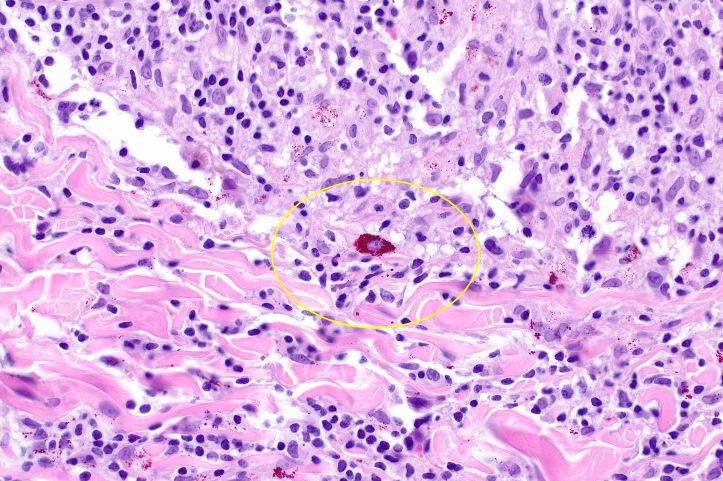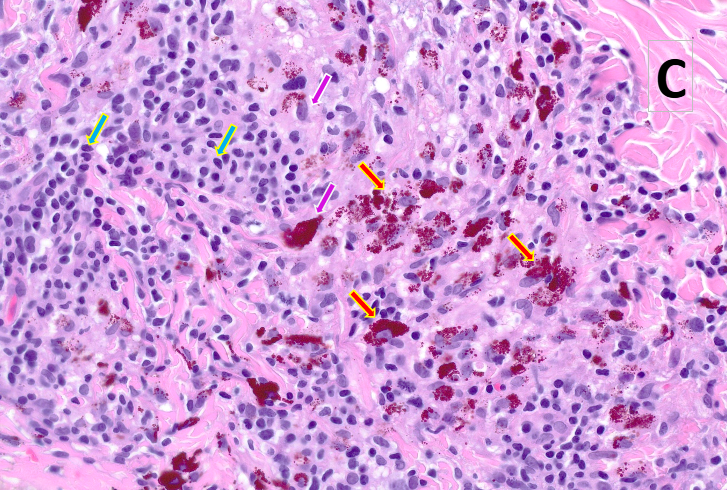Generally, after a person gets a tattoo, it just sits there unchanged forever unless the person’s tastes or relationship status changes and they decide to laser it away or go in for a cover-up. Other times, a tattoo may fade, blur, or result in scarring. In this case, the patient consulted a dermatologist because of irritation at the site of a red tattoo. I didn’t receive a clinical photo, but I’d like to imagine that it was a cute little red heart-shaped tattoo. (I guess that’s just the romantic in me). Anyway…
The Dermatologist performed a biopsy of the area to determine the definitive cause of irritation and sent it to the lab. In the photo above you can see abundant red tattoo pigment (red arrows) which appears as tiny red granules. However, instead of the pigment lying undisturbed amidst the skin’s collagen fibers (letter C), this particular pigment has elicited a strong immune response composed of white blood cells: lymphocytes (blue arrows) and macrophages (pink arrows).
The immune cells have recognized this pigment as foreign, unwanted material and are working hard to wall it off and remove it from the body by any means necessary. The Macrophages (“big eaters”) are doing their jobs by gobbling up as much of the pigment as they can hold, completely filling the cytoplasm in some of the cells. This is demonstrated in the photo below showing a single macrophage filled with tattoo pigment, where only the purple-colored cell nucleus is visible.

I can imagine that due to the intensity and bulk of the inflammation that the patient is experiencing some pain, itching, and swelling at the site. Additionally, the tattoo may be faded or distorted due to the immune reaction which is displacing and/or removing the pigment. It’s unclear which specific ingredients in this tattoo are causing the reaction, but we can see under the microscope that the reaction is due to the pigment, and we were able to exclude other causes such as infections.
Have you noticed changes in your tattoo? If so, it could be due to inflammation.
Dr. Culton MD
